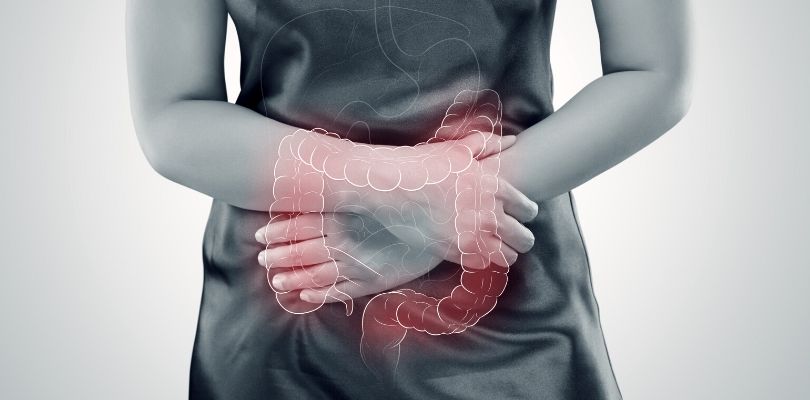Photo Credit: nandyphotos / iStockphoto.com
Getting to the Root of the Problem
Irritable bowel syndrome (IBS) may be a digestive issue, but it can trigger symptoms all over the body. From fatigue and mood swings, to muscle pain and sexual dysfunction, the list of problems is long —and unpredictable.
Unfortunately, an alarming percentage of IBS sufferers can also add headaches to that list. Recent research has found that about half of all IBS patients deal with frequent headaches, and an unlucky 10 to 20 percent suffer from migraine headaches.
The good news is that the medical community has found a link, and that means you may be able to target your treatment to take care of both sets of symptoms. It’s important to learn why one condition encourages the other so you can take the first steps toward less headache pain.
The Connection Between IBS and Migraine
Although they can be very distinct conditions, IBS and migraine share some common characteristics:
- Both ailments are more common in women than men.
- IBS and migraine often bring along the same comorbidities, including fibromyalgia, chronic fatigue, depression and insomnia.
- Each condition is diagnosed in the same fashion: by investigating and deciphering the symptoms.
There are no concrete tests to easily and absolutely determine whether either disease is at the root of your discomfort. Together with their shared symptoms and associated disorders, it is suggested that IBS and migraine may stem from the same source — although the medical community is still trying to figure out what that source may be.
Recent research suggests that those with IBS are up to 80 percent more likely to experience migraines and fibromyalgia or depression than the rest of the population. Given the prevalence of the problem, experts are investigating a few theories behind the connection, including:
Food Allergies
Since the foods you eat can clearly help or hinder your IBS symptoms, and certain foods are also known to trigger migraines, the problem could be traced to specific food allergies in some people.
Lately, there has been a lot of focus on gluten and how this plant protein can wreak havoc on the system. Although there’s no reason to label gluten as a universal toxin, it may be worth testing for a gluten allergy if you and your doctor suspect your diet may be a problem.
Central Sensitization Syndrome
The source of both migraine and IBS pain may lie in the central nervous system, with a process known as central sensitization. This nerve malfunction brings a heightened sensitivity to pain — a consequence of nerves “overreacting” for a long time, leaving you more prone to a pain response.
The result is ongoing, chronic pain that is very difficult to treat because it stems from the central nervous system rather than any specific or superficial wound or trauma.
Strategies to Ease the Pain
While IBS affects the bowel, have you ever wondered, can IBS cause urinary problems? From symptoms to treatments, here's the connection.
There’s no magic pill to take away your headaches or wipe away your digestive distress, but there are a few different approaches that give you a leg up on your symptoms. In many cases, small changes to your routine can ward off the problem before it begins.
Get Rid of Stress
You’ve heard it before, but it can’t be overstated: stress is one of the worst triggers for any chronic pain, whether it’s in the head or the gut. Take some time to find the sources of your stress — whether that’s work, relationships or personal expectations — and set a plan in action to eradicate them.
Making time for yourself and your favorite hobbies is an important first step to a less stressful life. Putting your own interests first will also make it easier to start putting your health first.
Track Your Symptoms
The better you know your triggers, the more control you’ll have over your symptoms. There’s never a downside to learning more about your condition, so get serious about recording your symptoms, reactions and daily habits in a journal devoted to your health.
No detail is too small — if questions come to mind, jot them down. Include your moods, menu and your surroundings when you write about your symptoms. Eventually, you may notice patterns or commonalities between your IBS discomforts and the onset of your headaches.
This is all helpful information for you and your doctor, so be sure to bring up your notes during your medical appointments.
Eat Carefully
Whether or not food allergies are compounding your problems, it doesn’t hurt to cut back on problem foods, since many aren’t so healthy to begin with. For instance, dairy, gluten and caffeine can wreak havoc on your digestive tract, and they’ve been known to lead to headaches.
Food additives and preservatives are other common culprits for pain and discomfort, so make the commitment to switch to a wholesome, whole-foods diet and get off the junk food for good.
In order to figure out how specific ingredients may be affecting your system, you may want to try an elimination diet. Talk to your doctor or nutritionist about your food concerns. They can help you craft a safe plan to isolate the problem food over the course of several weeks by carefully eliminating and adding back certain foods.
Find the Right Medication
Although there’s still a lot to learn about the relationship between IBS and migraines, experts believe that serotonin plays an important role in both conditions.
Fluctuating serotonin levels can interfere with you mood, but the damage can go much deeper. Taking a serotonin agonist can help level out the neurotransmitter, which has been proven to decrease migraine pain and relieve the constipation of IBS.
Remember that some over-the-counter pain relievers that target migraine pain — like ibuprofen and aspirin — can upset your stomach even more, so stick to other types. Acetaminophen may be your best choice, but consult your doctor about all the options available.







